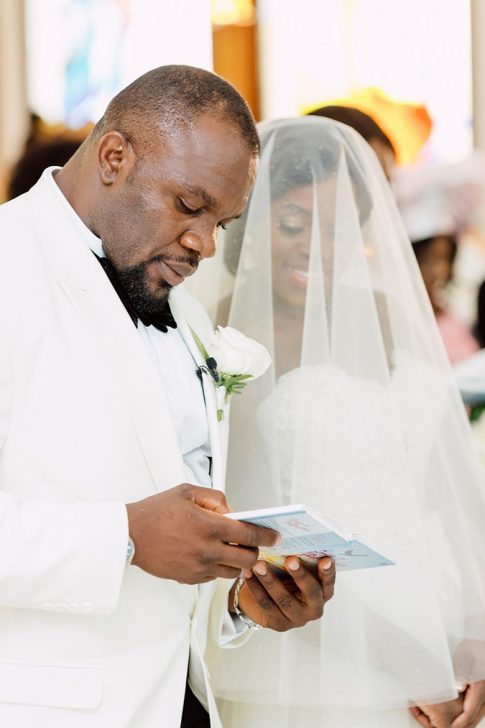
Nigerian Wedding Traditions With Save The Date
Written by Adam Hurst on March 3, 2018.
Tagged under: Nigerian weddings, save the date wedding planners
Dubai is such a wonderful cultural melting pot that it can host weddings for many different nationalities, religions and cultures. Each of these weddings has their own similarities and differences, and it may be the case that you might one day be invited to a wedding that is different to anything you have experienced before.
With this in mind, BCME decided to speak to a range of experts about the different wedding traditions that you might be lucky enough to encounter whilst living in the UAE.
Kicking off the series, we start with Nigerian wedding traditions, as explained by Olga Ezzat, Creative Director of Save The Date. Below, Olga discusses some of the common traditions that you might expect to find at a Nigerian wedding. Enjoy!
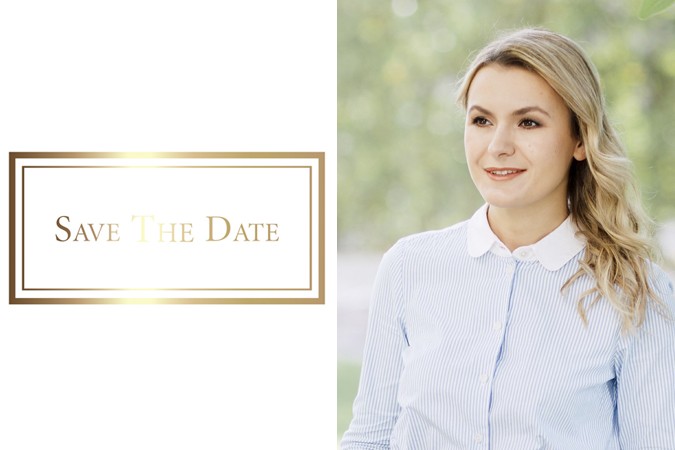
Above: Olga Ezzat of Save The Date
There are two celebrations for any Nigerian couple. The first one is the traditional (tribal) wedding, where both families get together to unite and celebrate their children’s’ marriage. This ceremony has a very strong and authentic cultural aspect and differs according to tribes. For example, Yoruba (the biggest tribe in Nigeria) would do it differently from Igbo, and so on.
However, there are very few chances that a traditional ceremony would be attended by any of the readers of BCME in the UAE or anywhere else in the world, except Nigeria, because no matter what, the traditional wedding normally happens back home.
The traditional wedding is likely followed by the ‘white wedding’. White weddings in Nigeria are massive, and often some guests attend the wedding without even knowing the middle name of the couple. There is no such thing as an RSVP at Nigerian weddings. In some cases, the number of guests exceeds a thousand people, which explains why some Nigerians love to marry abroad; they are free from wedding crashers.
This type of wedding is not very different from the average western wedding. However, a few things might seem unusual.
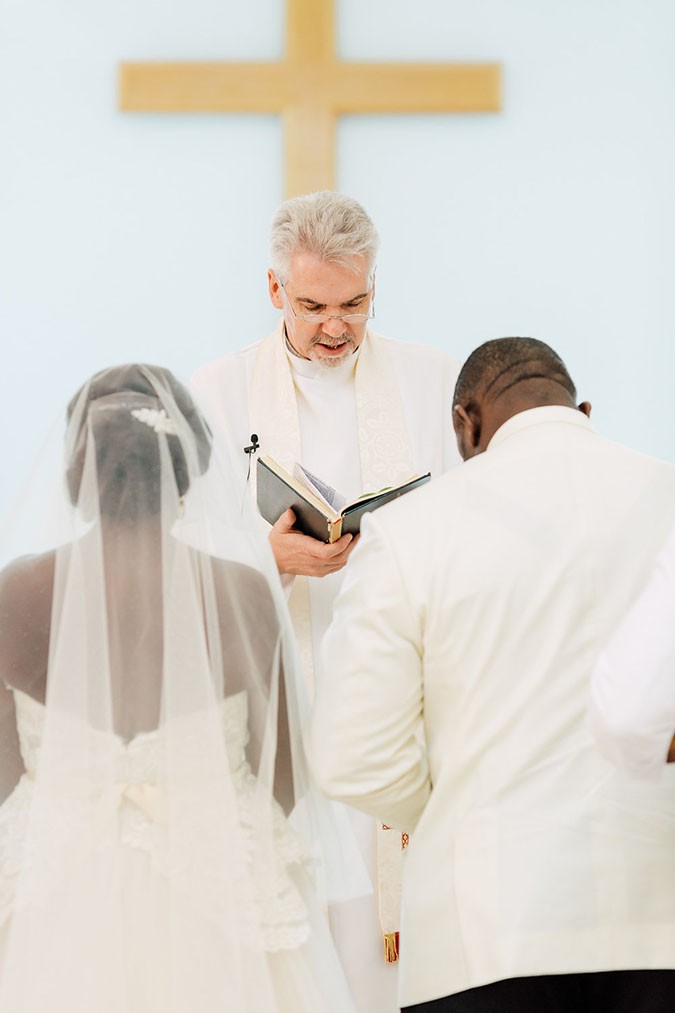
Image credit: Purple Tree Photography
Firstly, most of Nigerians are very devoted Christians, and this religious aspect is strongly present throughout the wedding. The ceremony is quite long and purely religious. It is always conducted by a priest.
There are a good amount of gospel songs during the wedding, before and sometimes during the wedding reception. Some weddings have alcohol, whilst some don’t – it is purely up to the families. Overall, marriage and weddings are viewed as a religious act, not just a big party.
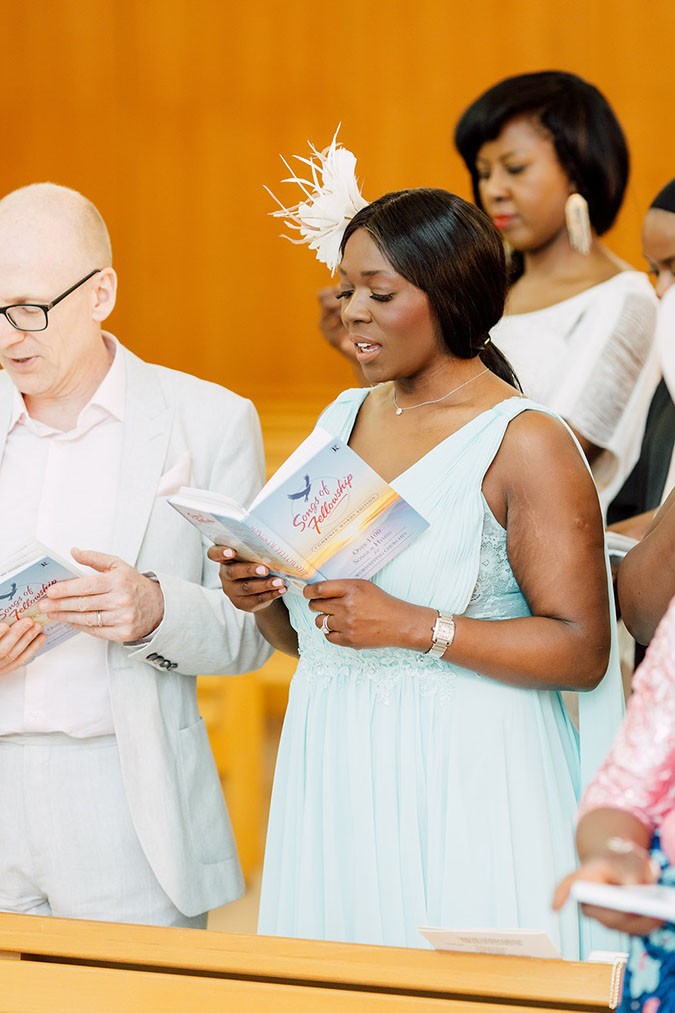
Image credit: Purple Tree Photography
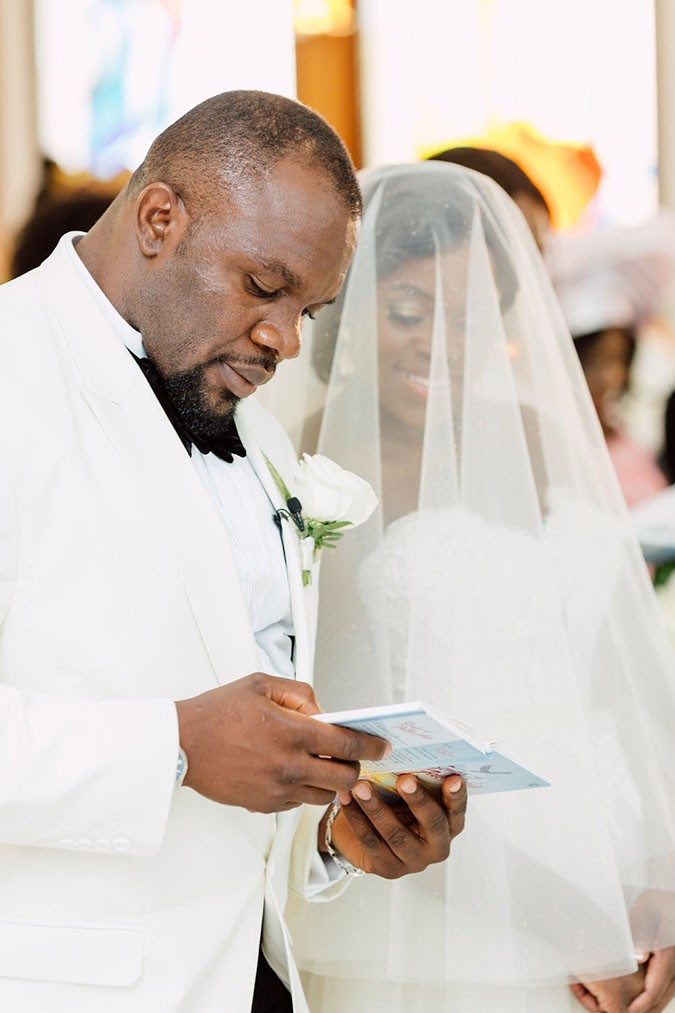
Image credit: Purple Tree Photography
Since the parents of the couple usually pay for the wedding, the decision of the extent of the party, versus religious elements lies with them.
Having a seating plan is not very common at Nigerian weddings, where the tables closest to the couple are for parents and friends. The couple sits separately from their guests, sometimes at a head table, or sometimes on a stage, depending on their preferences.
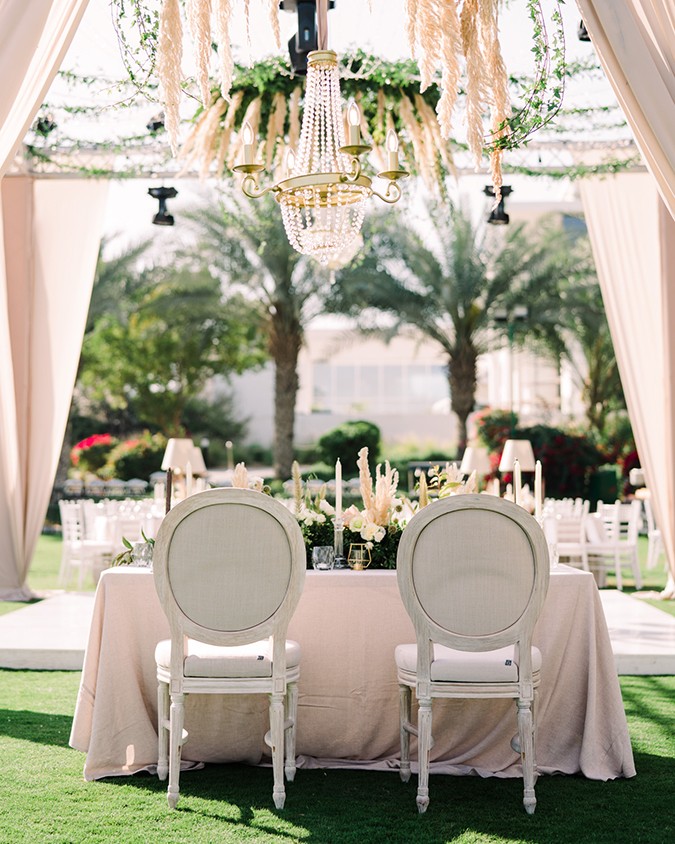
Image credit: Joem Aldea Photography
Nigerian weddings are associated with big bridal trails and on average five bridesmaids and five groomsmen. The bridal entrance to the party is a big thing. The couple enter the reception dancing, accompanied by their bridesmaids and groomsmen. The rest of the guests greet them standing.
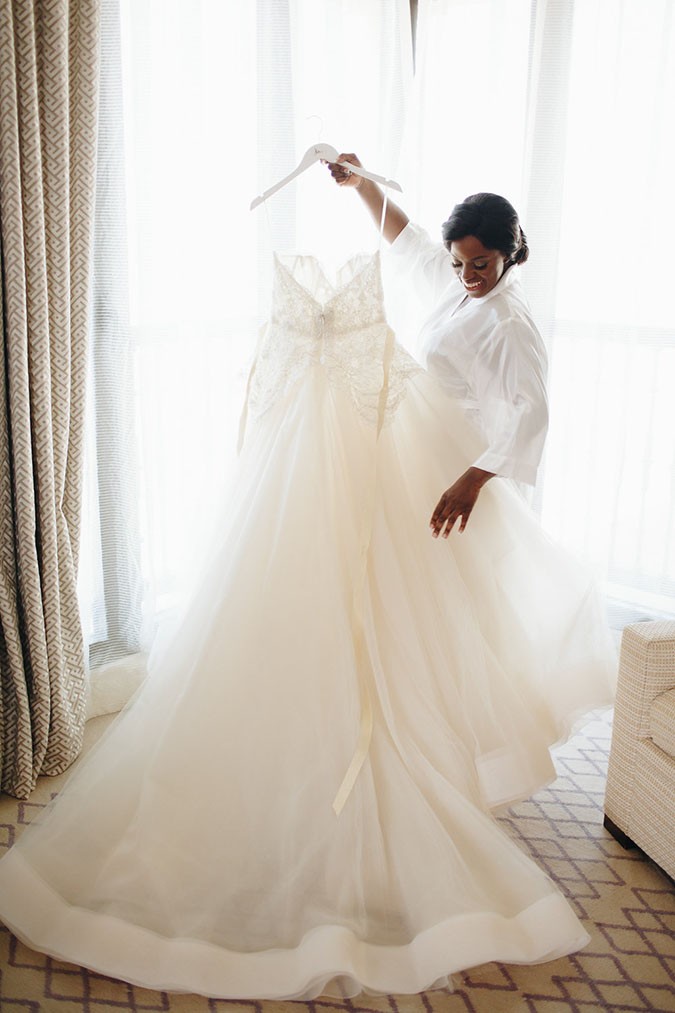
Image credit: Purple Tree Photography
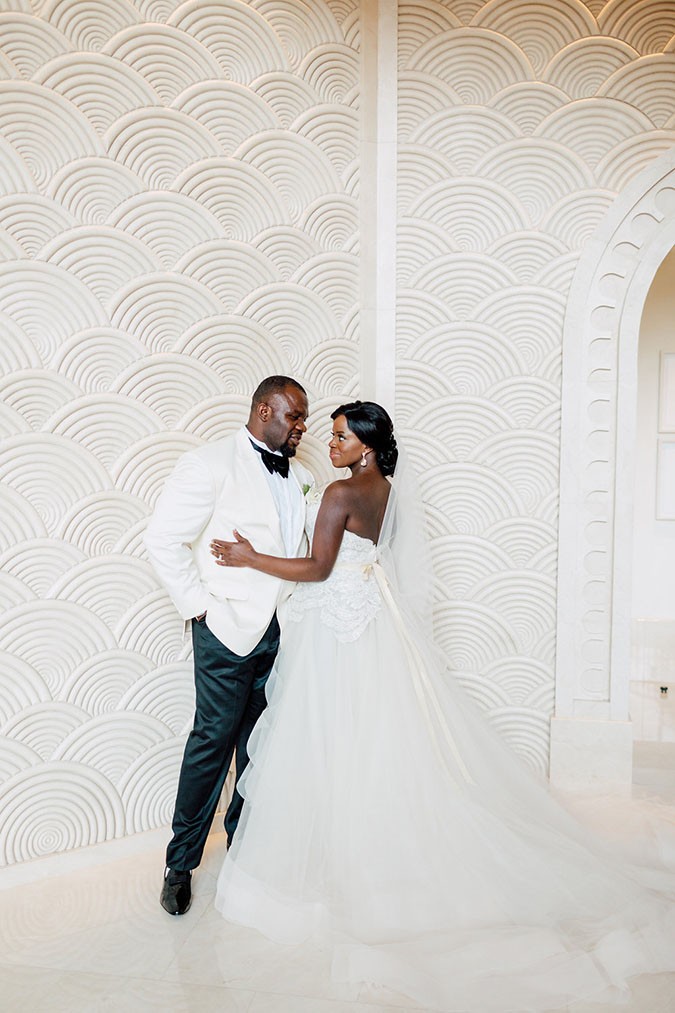
Image credit: Purple Tree Photography
For the white weddings that we organise for brides in Dubai, preferred styles include classic mermaid cut as well as princess ball gown style.
Later on in the evening, most brides change into a less extravagant dress, which will allow them to dance and party. Some will wear an Aso Ebi, which is an African traditional outfit for the bride and her bridesmaids. All of them will be matching, normally in one bright colour, such as pink, orange, green, or yellow. This traditional dress is also worn together with a headpiece called a ‘gele’, which resembles a turban. Once the bride and her bridesmaids have changed into Aso Ebi, they make a loud entrance to the party.
There are always guest favours at any wedding. Very often they have a practical purpose and are rarely eatable.
Nigerians are very happy and warm people. They like music, dancing and to have fun in general. As a guest, you are expected to dance with everyone else.
On the whole, Nigerian white weddings have conventional international traditions, such as cake cutting, first dance, toasts, bouquet tossing and so on.
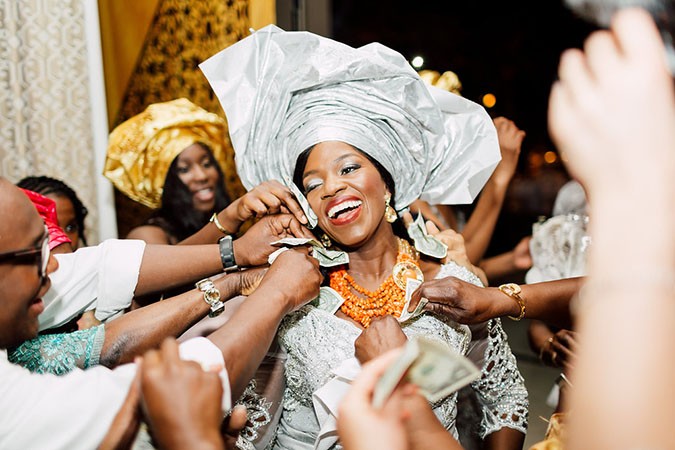
Image credit: Purple Tree Photography


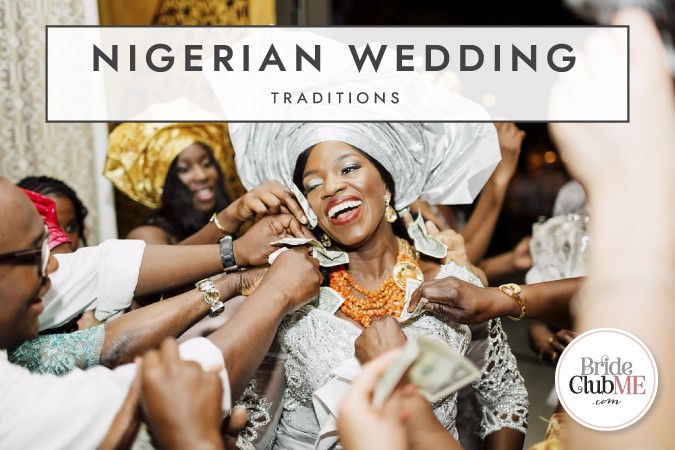




Leave a Reply